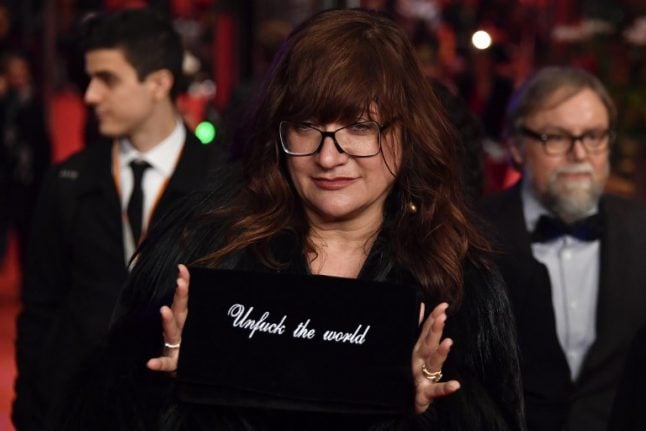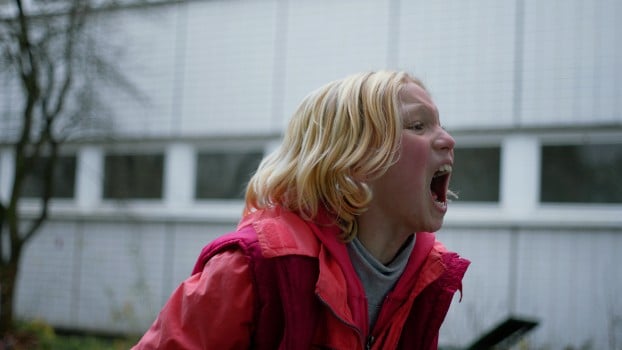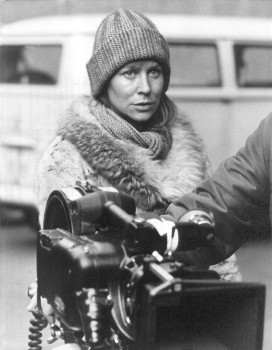One of Spain's most acclaimed directors, Isabel Coixet, presented “Elisa and Marcela”, a lushly photographed black-and-white lesbian love drama.
But even before the film could be shown at the Berlinale, Europe's first major cinema showcase of the year, 160 German independent arthouse theatre operators fired off an open letter to Culture Minister Monika Gruetters and the festival demanding that the picture be yanked from the race.
“We… do not agree with a film that will not have normal theatrical distribution (in Germany) but will only be seen on Netflix, being screened,” they said.
SEE ALSO: Germans embracing TV screening services in record numbers
“We therefore demand that the film be shown out of competition.”
The Berlinale rejected the appeal, which had also drawn support from the International Confederation of Art Cinemas.
But outgoing chief Dieter Kosslick, who is leaving after 18 years at the helm, called for a summit of the top festivals including Cannes and Venice to resolve the issue roiling the industry.
“The international film festivals should take a common stance on how to deal with films from streaming platforms in the future,” he told AFP in an emailed statement.
Cannes has barred Netflix films from its vaunted competition in the name of protecting embattled cinemas, while the Berlinale has excluded movies from its race that do not have at least some theatrical distribution.
Meanwhile Venice has embraced streaming platforms and crowned the Netflix feature “Roma” with its top prize in September.
'Some kind of mafia'
At the Berlinale screening, there were both boos and cries of “bravo” as the red Netflix logo appeared on screen during the opening credits.

Actors Natalia de Molina and Greta Fernandez with director Isabel Coixet at the premiere of “Elisa and Marcela” in Berlin. Photo: AFP
Speaking at a news conference later, Coixet reacted angrily to the German cinema operators' campaign, describing herself as a “struggling filmmaker” who needed to accept financing where she could find it.
“It certainly hurts. It's being done in the name of culture but I don't think it is. They have shown a lack of respect for the festival and my work,” said Coixet, who is known for English-language features such as “The Bookshop” and “My Life Without Me”.
“There's a supposition behind it as if we were some kind of mafia trying to smuggle our film in. They should have known it was happening.”
Calling for a peaceful “coexistence” of platforms, she noted that the film would be shown in cinemas in markets including Spain and probably Brazil.
“That is a country that's going to ban gay marriage so I think it's an important film to show there,” she said.
Same-sex marriage has been legal in Brazil since 2013 but the country's new far-right president, Jair Bolsonaro, has vowed to repeal the law.
“Elisa and Marcela” dramatises the story of two girls — Elisa Sanchez Loriga and Marcela Gracia Ibeas — who developed a romantic relationship while at school in 1880s Spain.
They sought to share a life together in a Galician village but in the face of exclusion and mob protests, opted to get married.
Elisa disguised herself as a man to dupe the local priest and exchanged vows with Marcela in church in 1901.
Despite their eventual arrest on blasphemy, “transvestitism” and document fraud charges, the marriage was never annulled, although the couple had to flee Spain for Portugal and ultimately Argentina, leaving Marcela's baby behind.
Coixet said she used contemporary newspaper accounts, letters between the women and a sole black-and-white wedding photo as inspiration in writing the screenplay.
Although Coixet hailed global progress in gay and lesbian rights, the film notes in its closing credits that only two dozen countries worldwide have legalised same-sex marriage.
“This still happens,” said actress Natalia de Molina, who plays Elisa, of the repression faced by the pair.
“There are so many Elisas and Marcelas around the world,” she added.
By AFP's Deborah Cole




 Please whitelist us to continue reading.
Please whitelist us to continue reading.
Member comments